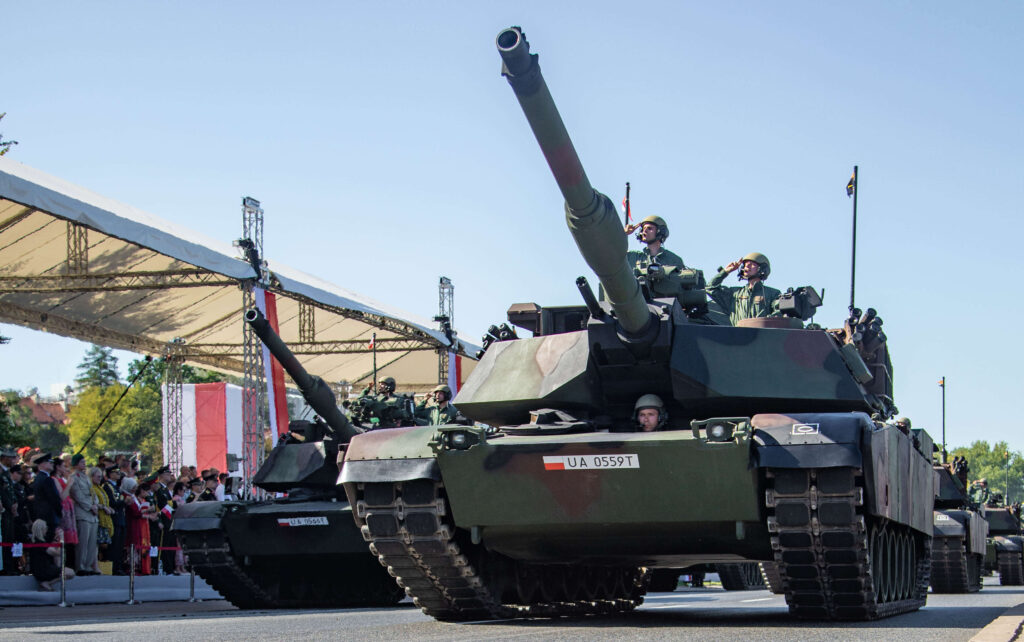Twenty-five years ago, Poland joined NATO. Since then, it has emerged as a leading force for stability in Central and Eastern Europe, consistently demonstrating its adherence to the alliance’s values and principles.
Poland reliably exceeds NATO’s goal of member countries spending at least 2% of GDP on defense and is spending 4% this year. This commitment to burden sharing is especially important at a time when the alliance is facing a resurgent Russia.
Because of this, the Polish armed forces are highly interoperable with NATO forces. A well-trained and professional all-volunteer force, organized according to NATO requirements, they frequently exercise with other NATO forces, and for 10 years did their part in trying to bring peace and stability to Afghanistan. Poland also participates in U.N. peacekeeping missions and is forging closer defense cooperation with its neighbors. This proactive approach strengthens regional security and promotes a more stable Europe.
While Poland has a respectable domestic defense industry, its need to quickly modernize and expand its military to help deter Russian aggression has prompted significant weapons purchases from the U.S. and South Korea.
Contracts for new or enlarged orders of American M1 Abrams and Korean K2 tanks, HIMARS rocket- and Korean K9 self-propelled artillery systems, Patriot missile batteries, Korean FA-50 light attack jets, Apache attack helicopters and Javelin anti-tank weapons have all been inked since the invasion of Ukraine in early 2022.
Prior to the Russian invasion, Poland purchased the F-35 joint strike fighter to further enhance its interoperability with NATO during air operations. With these weapons, Poland will be NATO’s conventional deterrence powerhouse on the alliance’s eastern flank and America’s strongest ally in Eastern Europe.
Among Poland’s weapons purchases, nothing is more likely to prevent Russia from invading NATO Europe than the M1 tank – arguably the West’s apex ground combat predator. Abrams tanks remain the world’s undisputed heavyweight champions of land warfare more than 40 years after their introduction as part of the U.S. Army’s “Big Five” weapons modernization effort post-Vietnam. Impressively designed and built from the start, they have benefited from consistent upgrades and technology insertions, and their export to America’s allies and partners has been a centerpiece of many U.S. regional security strategic plans.
In April 2022, Poland signed a deal for 250 new M1A2 tanks to be delivered starting in 2025, and in January 2023, they purchased another 116 retired U.S. Marine Corps M1A1s that will be refurbished for front line use; those deliveries began last year and are ongoing. If at all possible, those deliveries should be accelerated by the Biden administration and Congress.
Poland – as well as all of NATO – will benefit greatly from receiving these tanks faster, given that nation’s geostrategic location and the outsized deterrent impact those tanks will have on Russia. This week provides an excellent opportunity for President Biden to do so. Polish Prime Minister Donald Tusk and Polish President Andrzej Duda are visiting Washington, DC, to “reaffirm their unwavering support for Ukraine’s defense against Russia’s brutal war of conquest” and celebrate the 25th anniversary of Poland joining NATO, the White House said last month.
When it comes to deterring further Russian aggression, especially where it might be turned against continental Europe, nothing is more important or likely to have greater effect than prioritizing Poland’s defense modernization efforts. The United States is right to continue its support by arming Poland and supporting Poland’s leadership role in Central and Eastern Europe. As part of that, expediting the delivery of Abrams tanks to Poland should be a strategic imperative.







